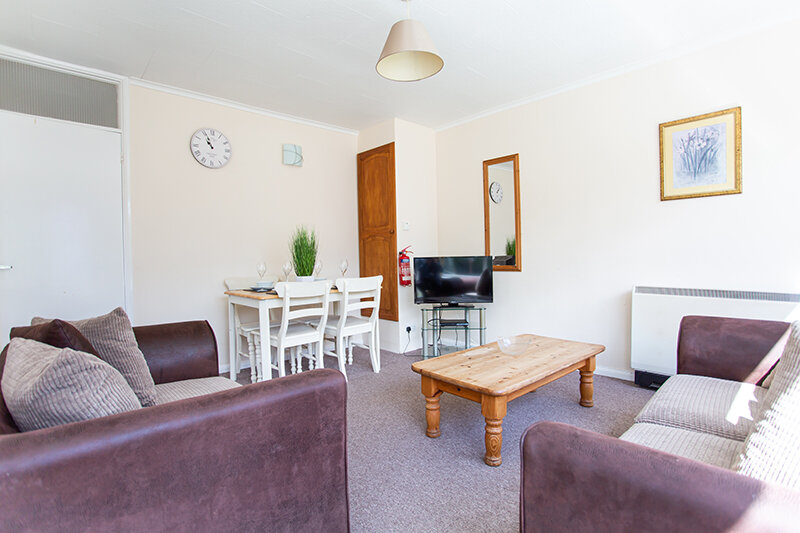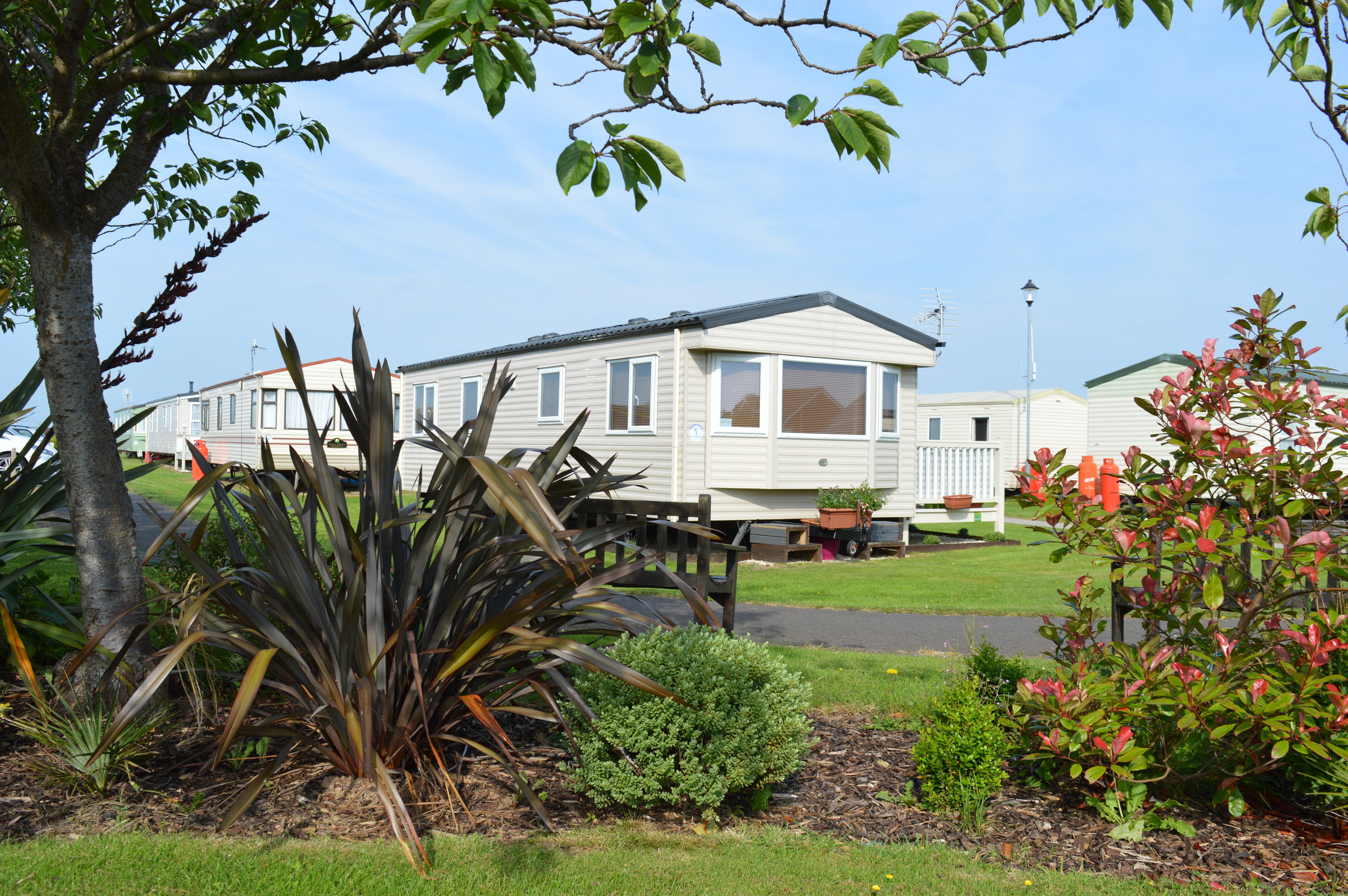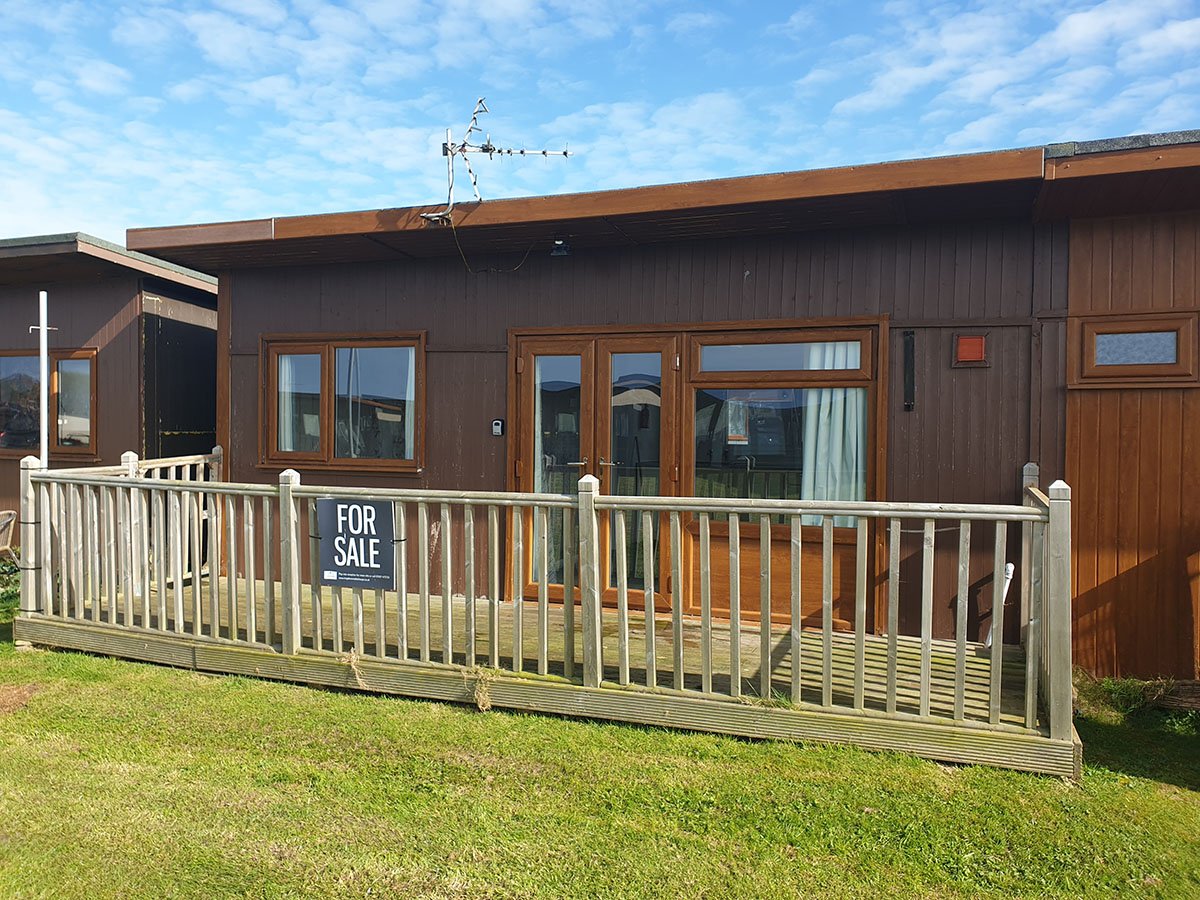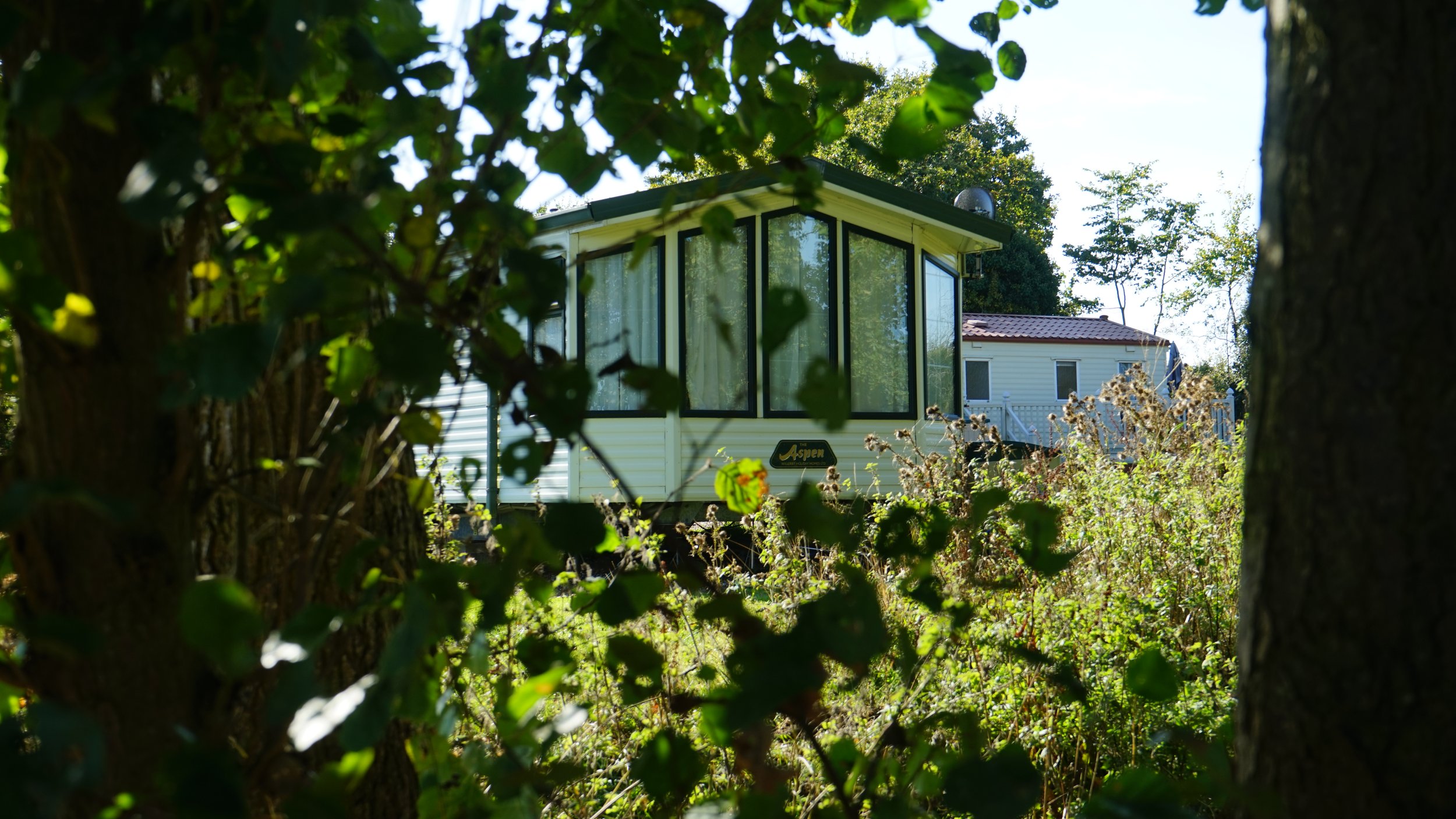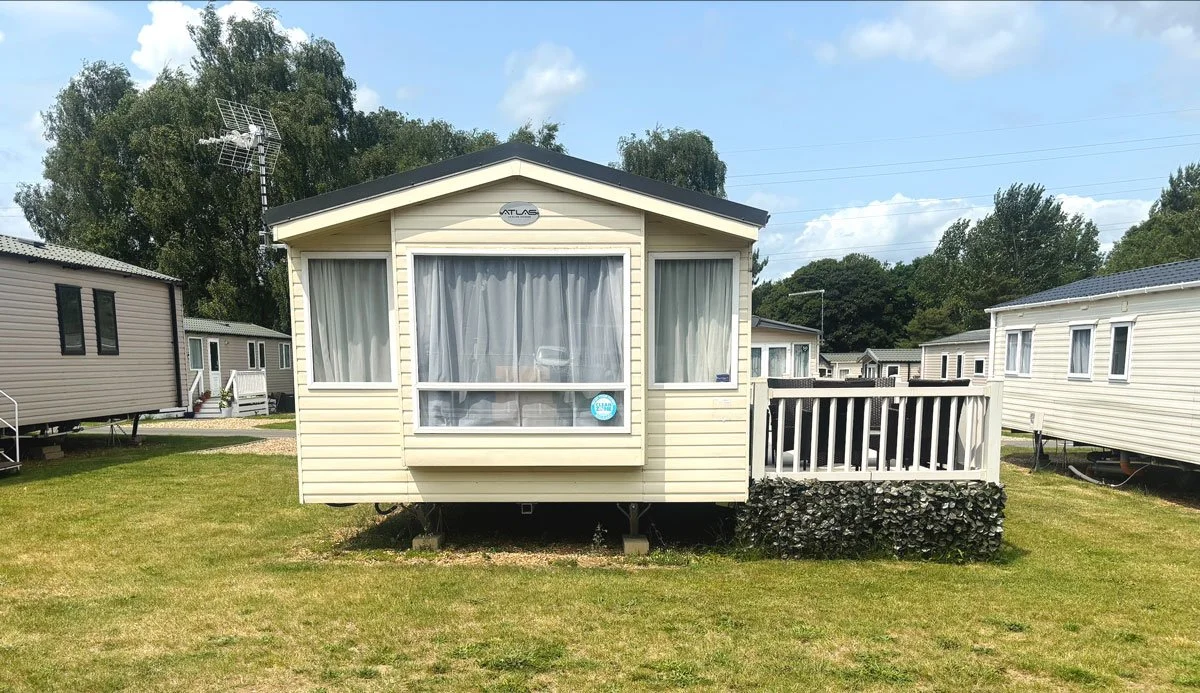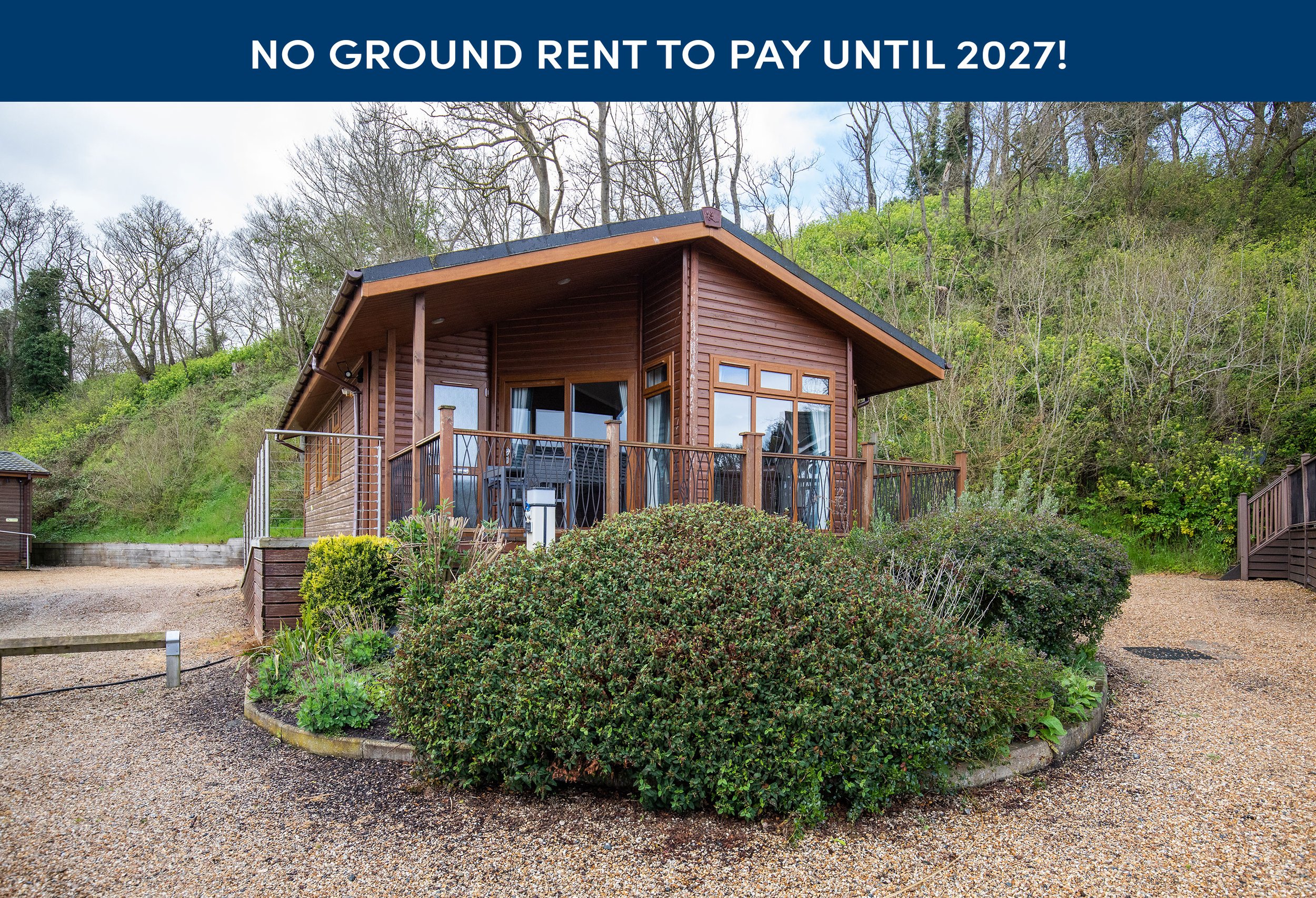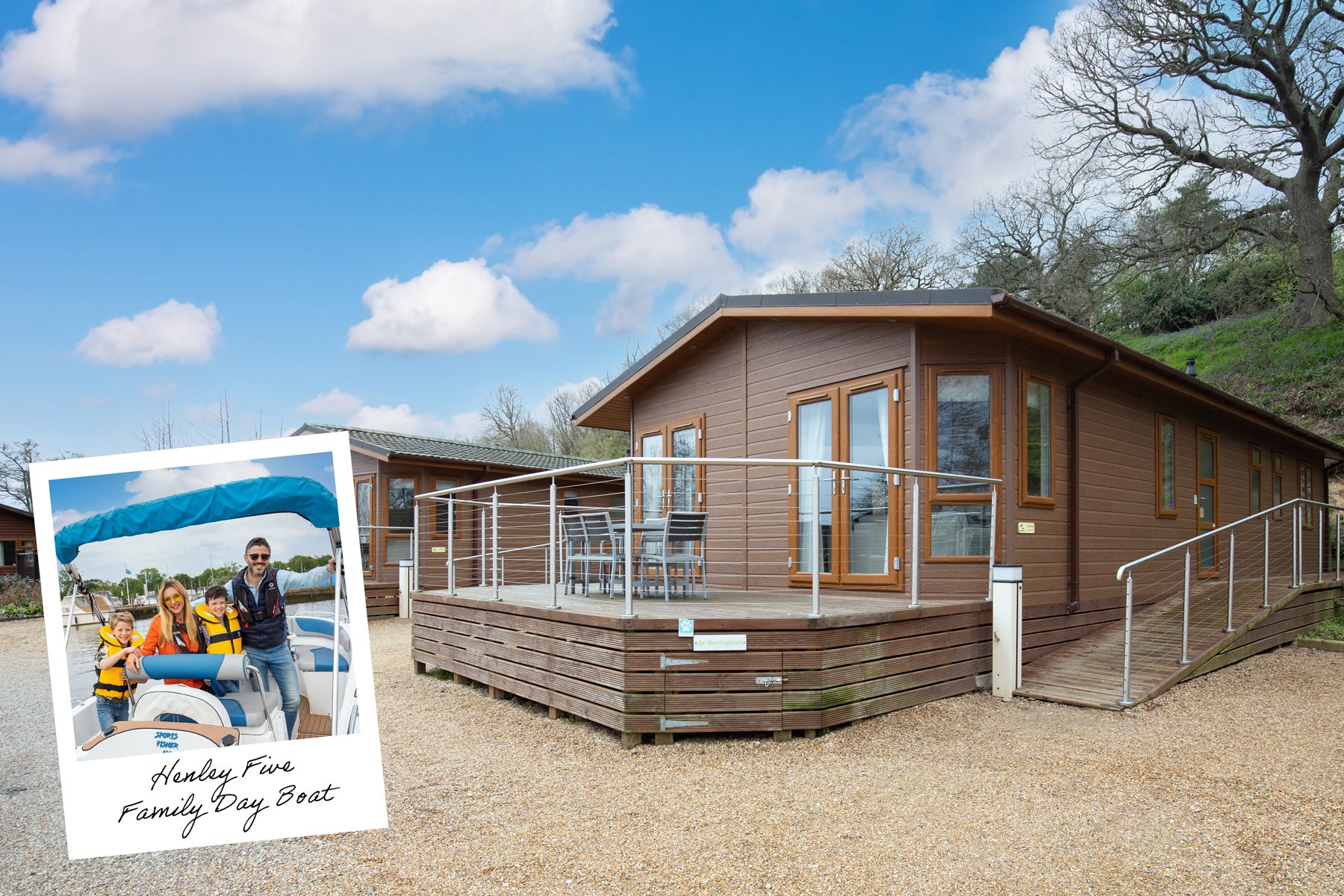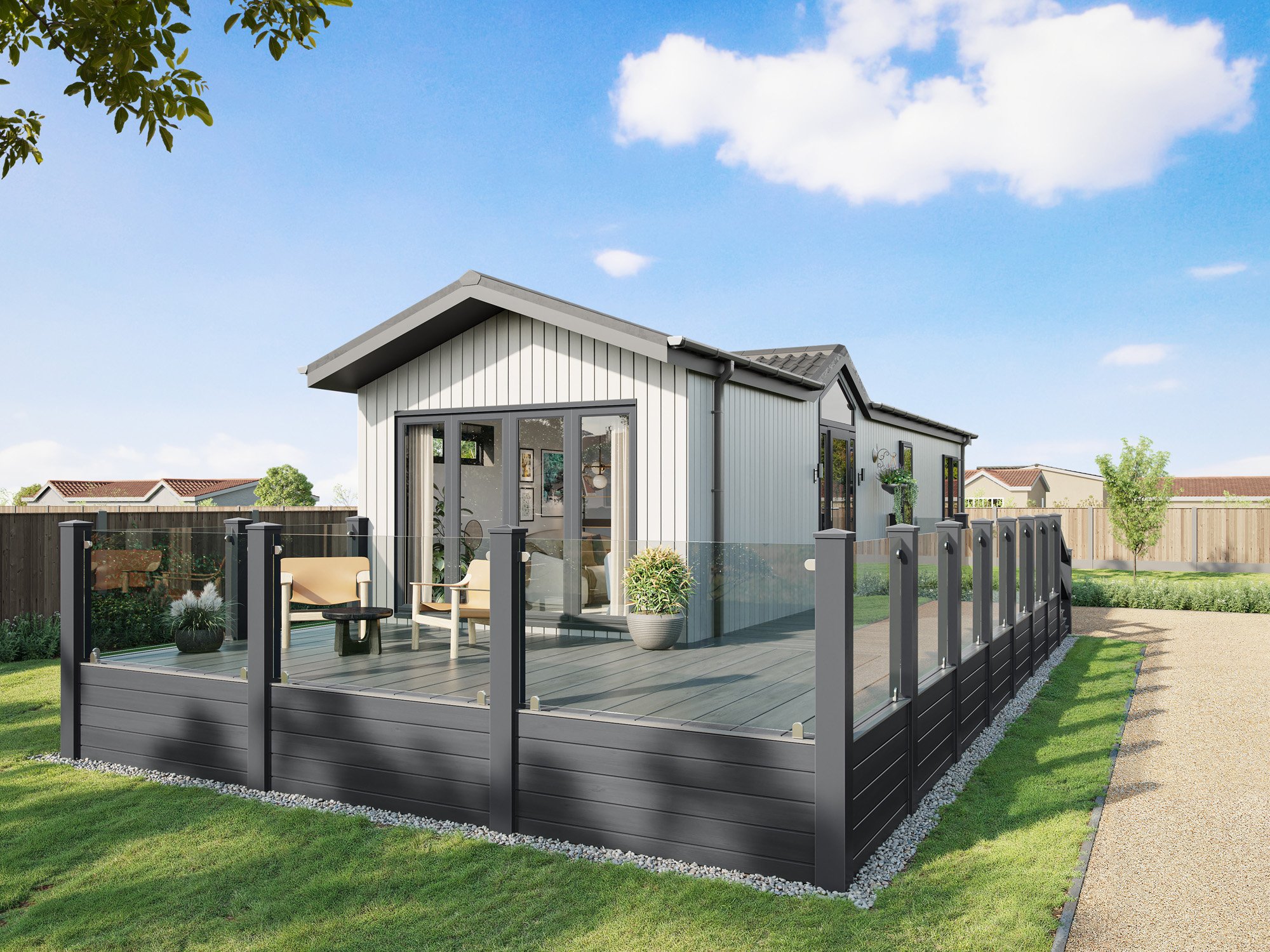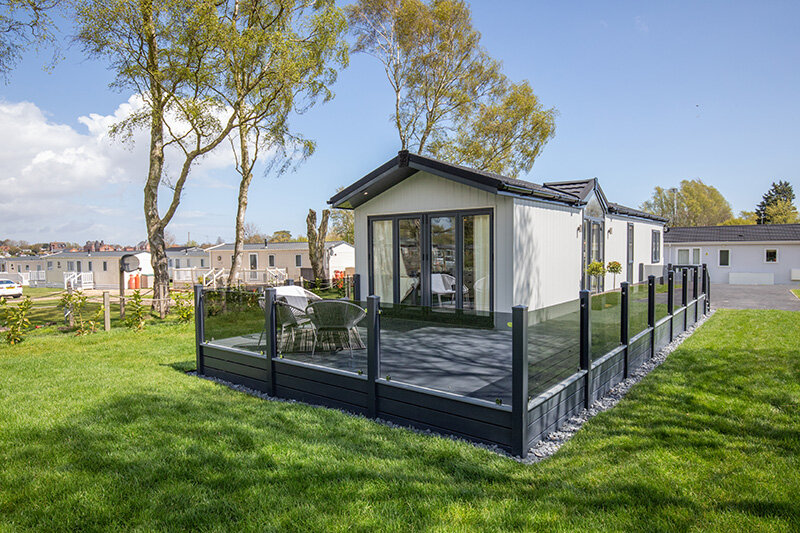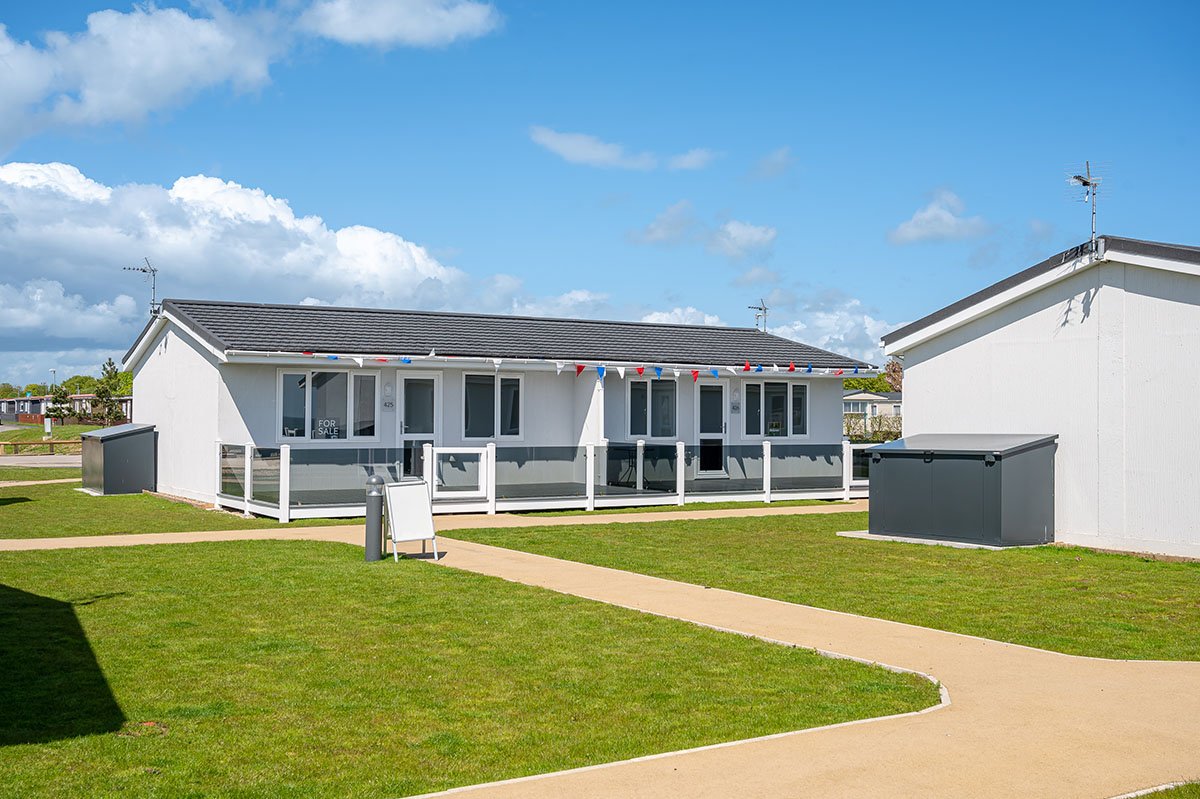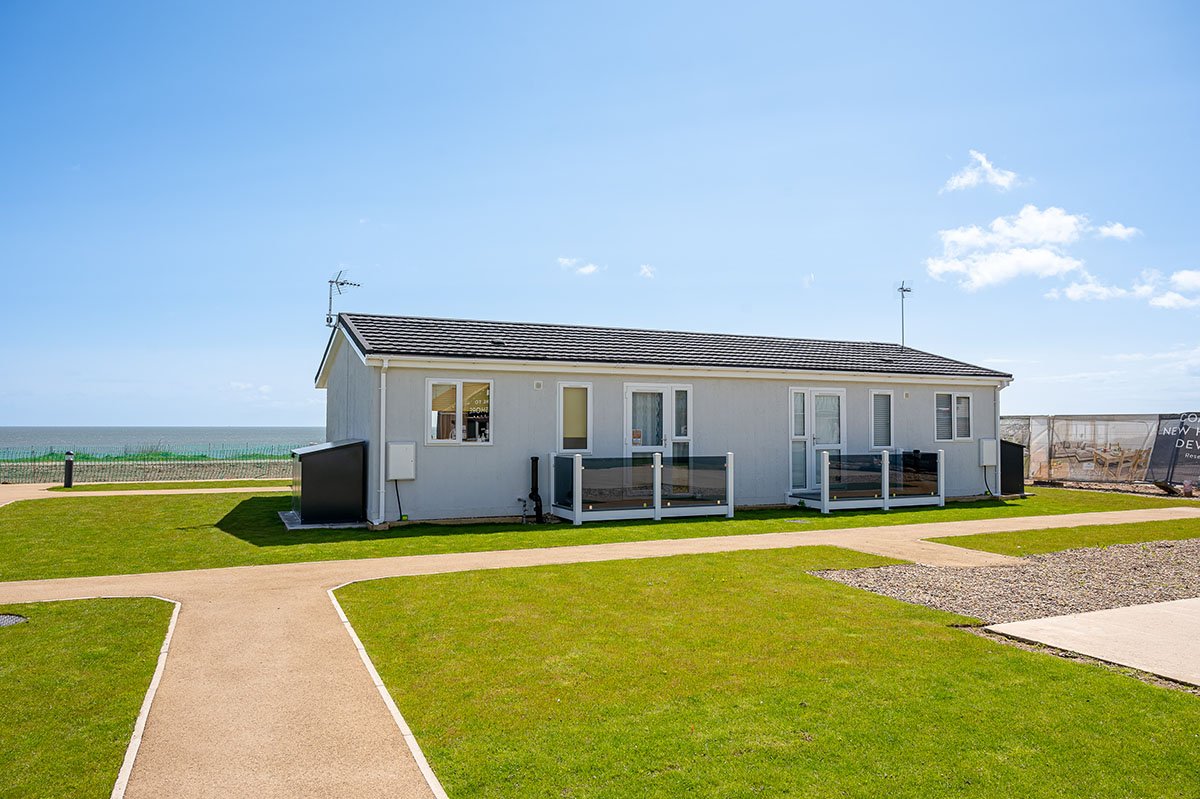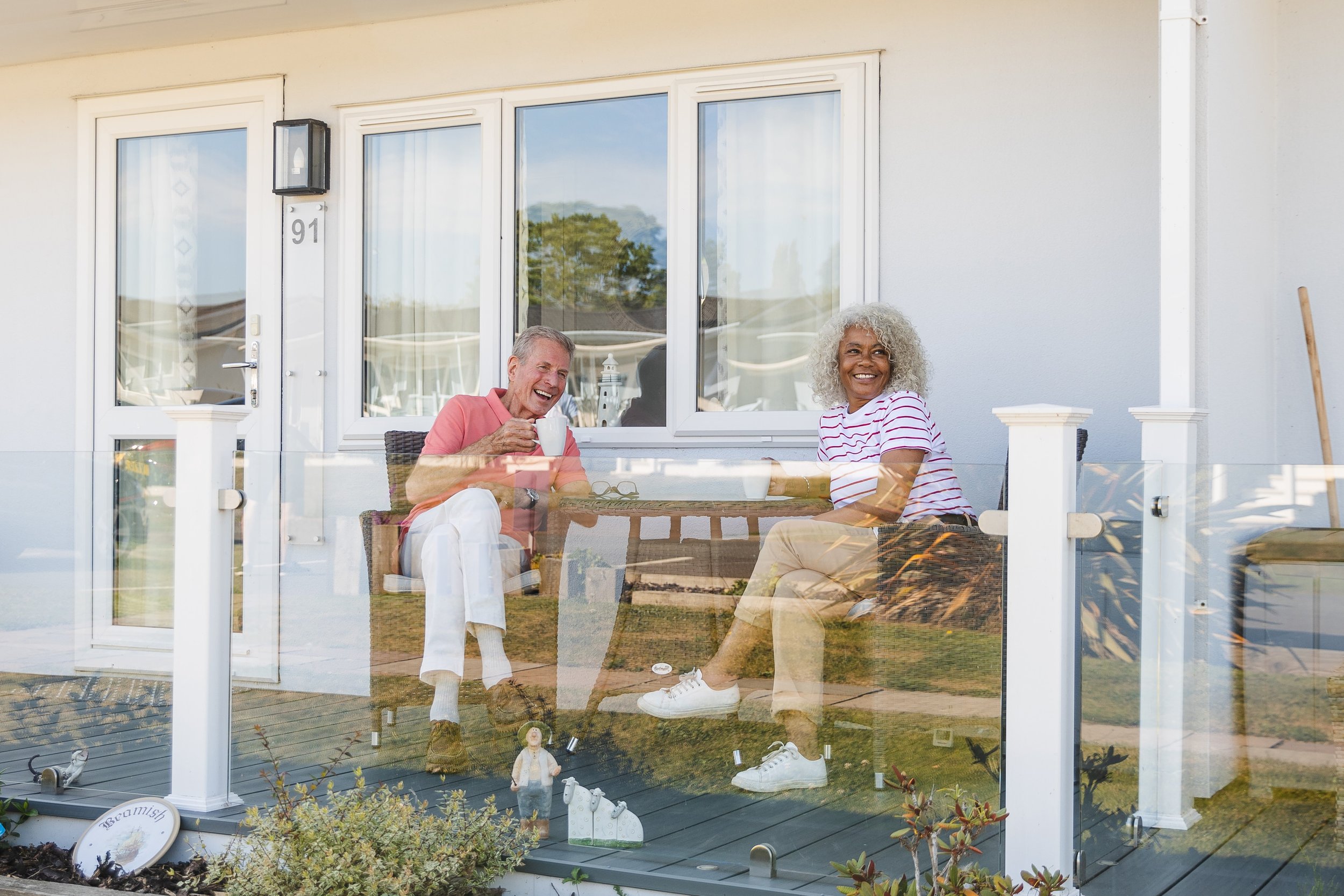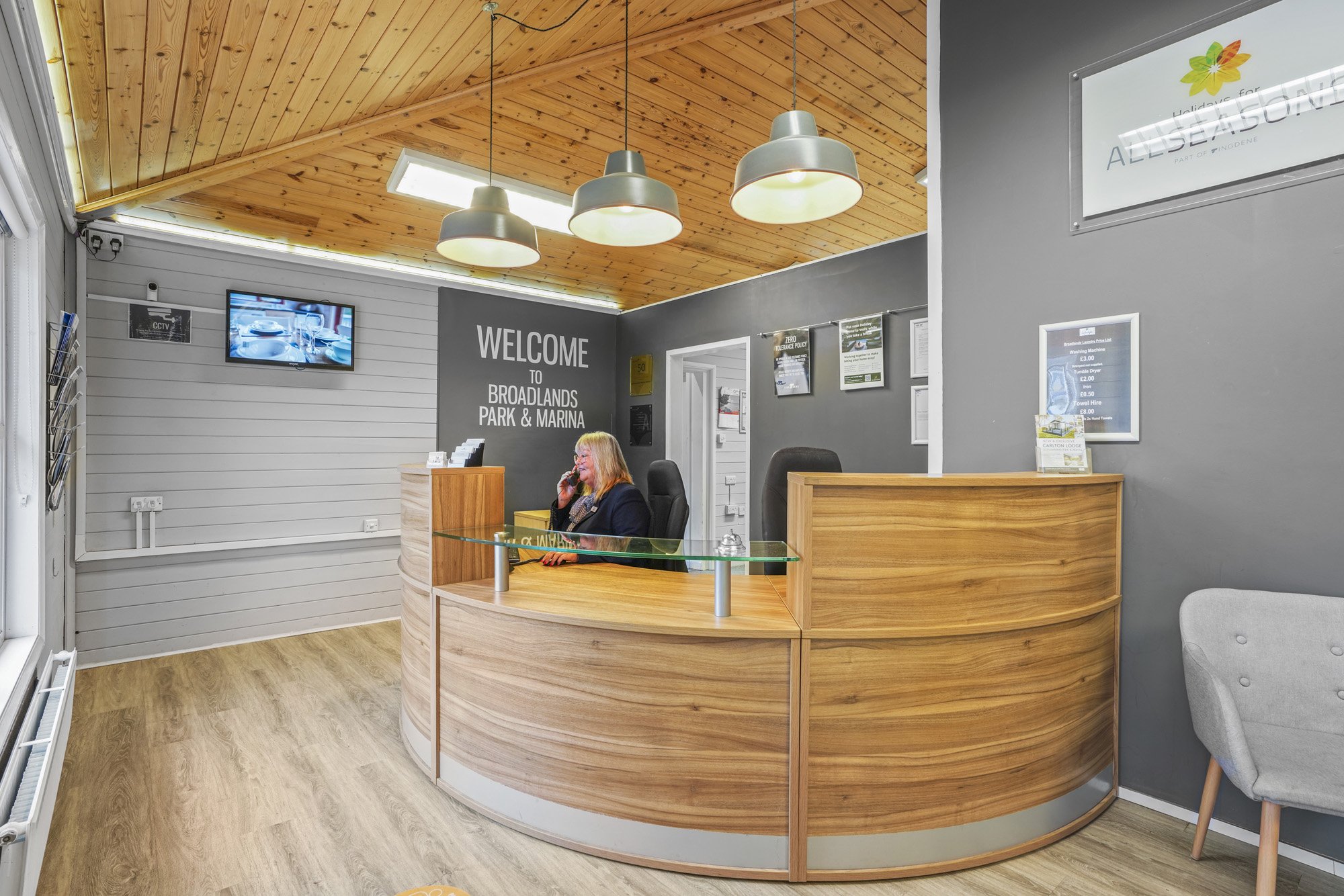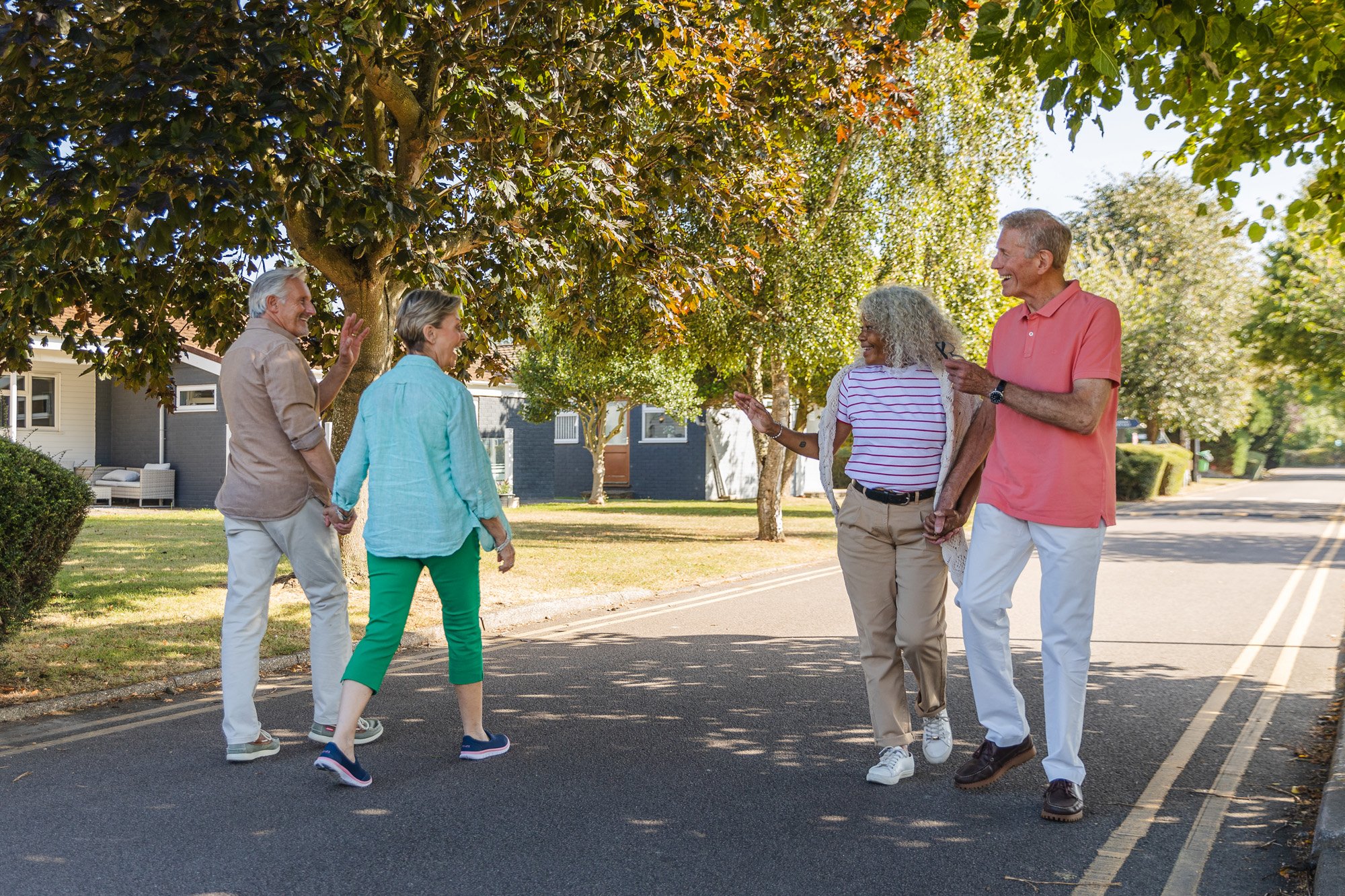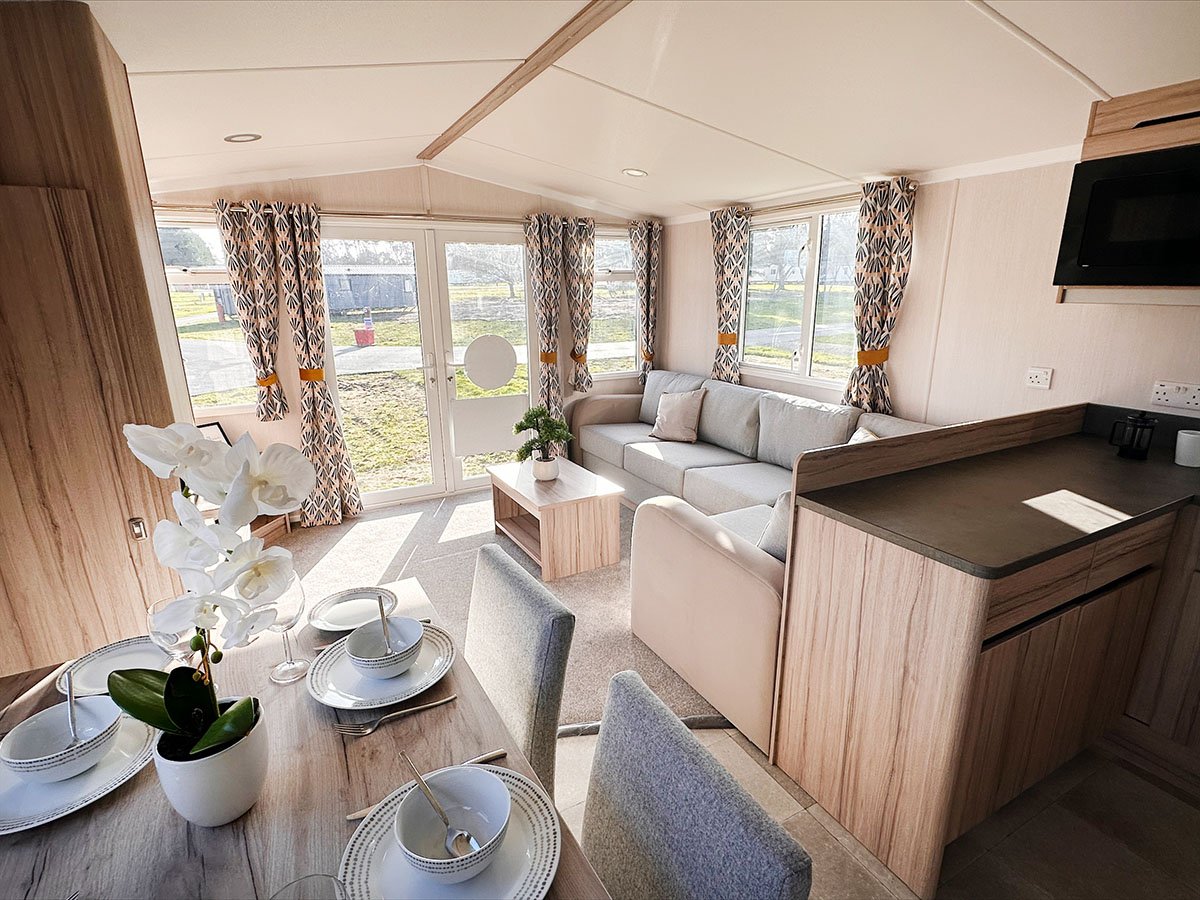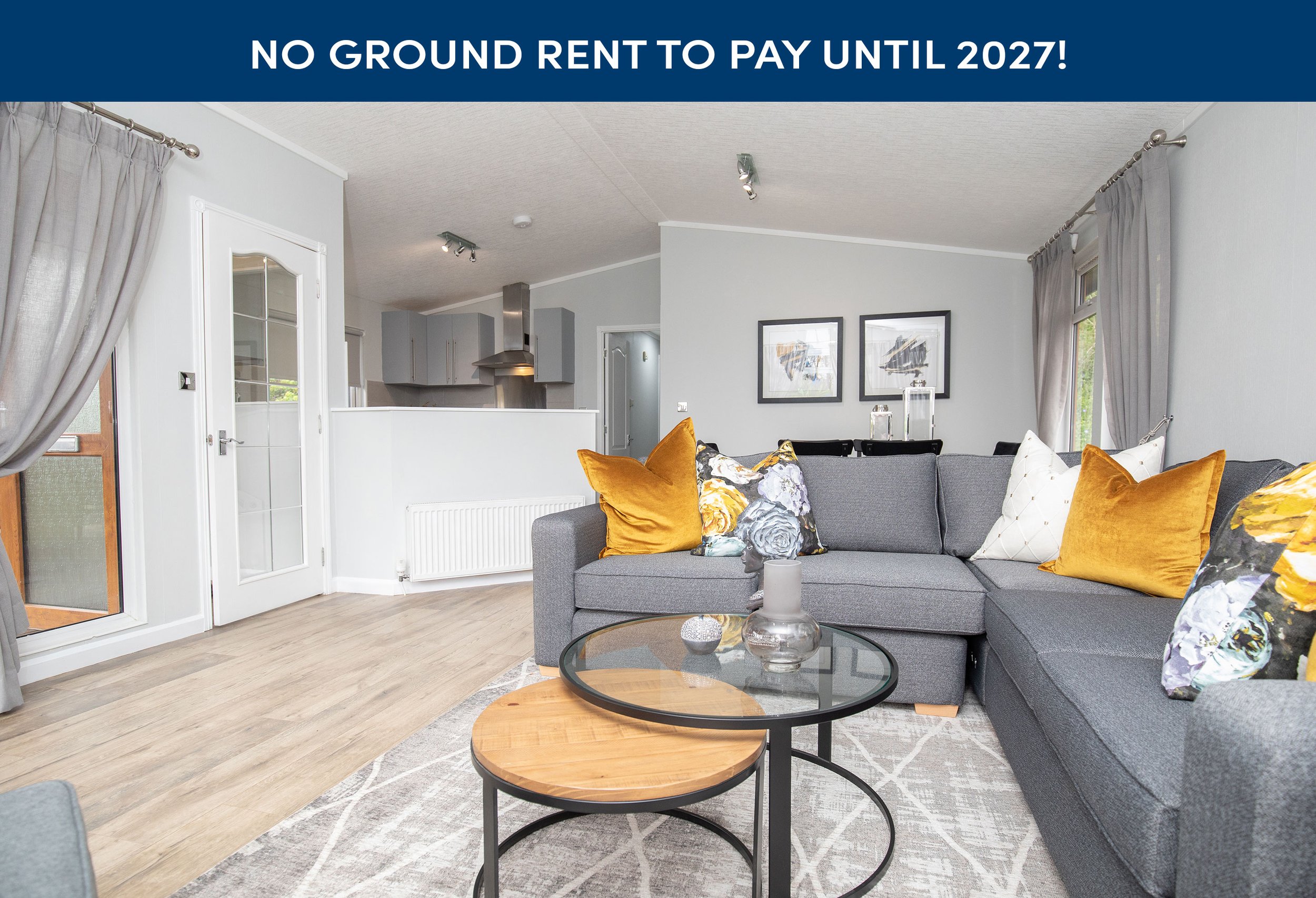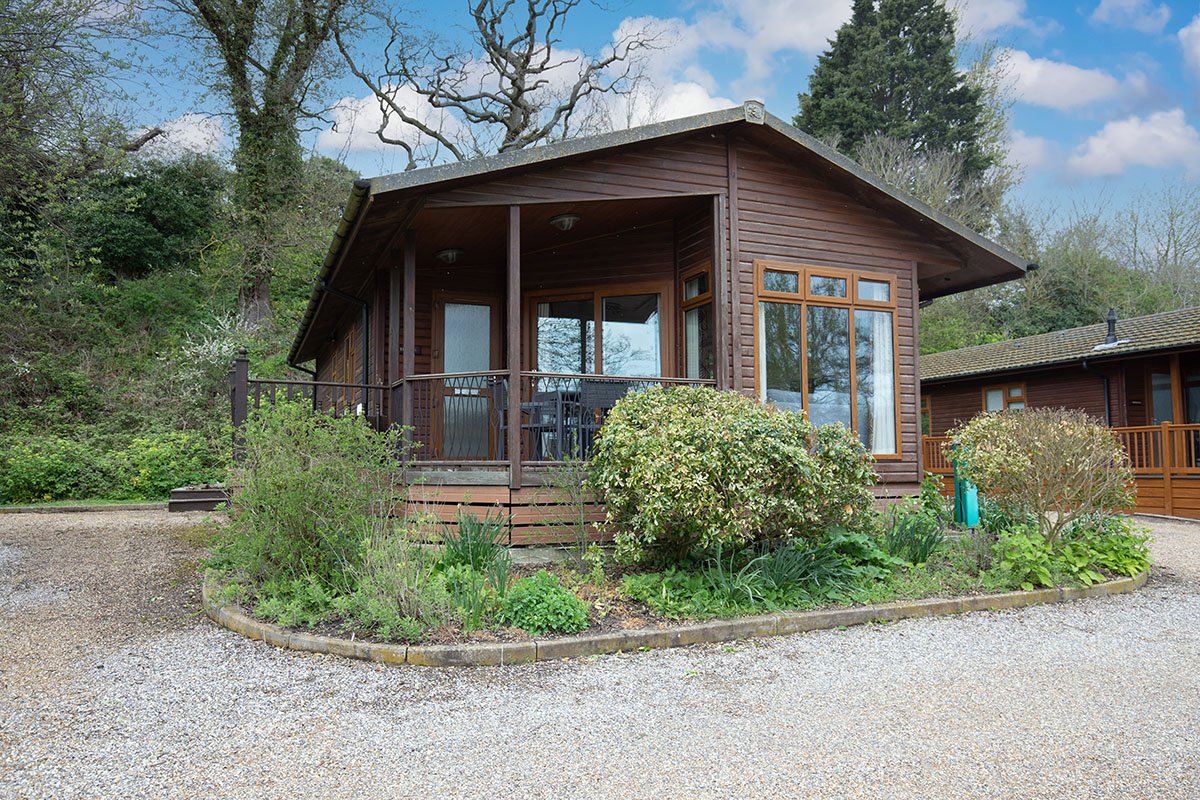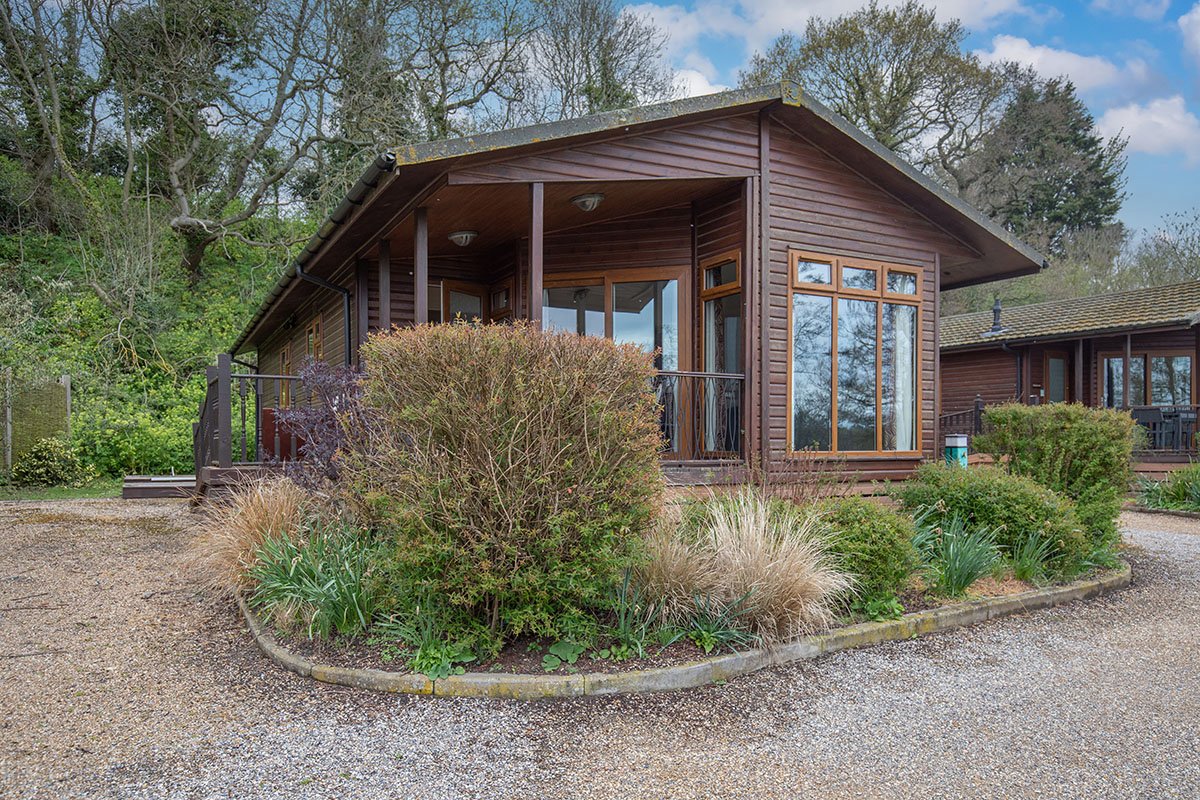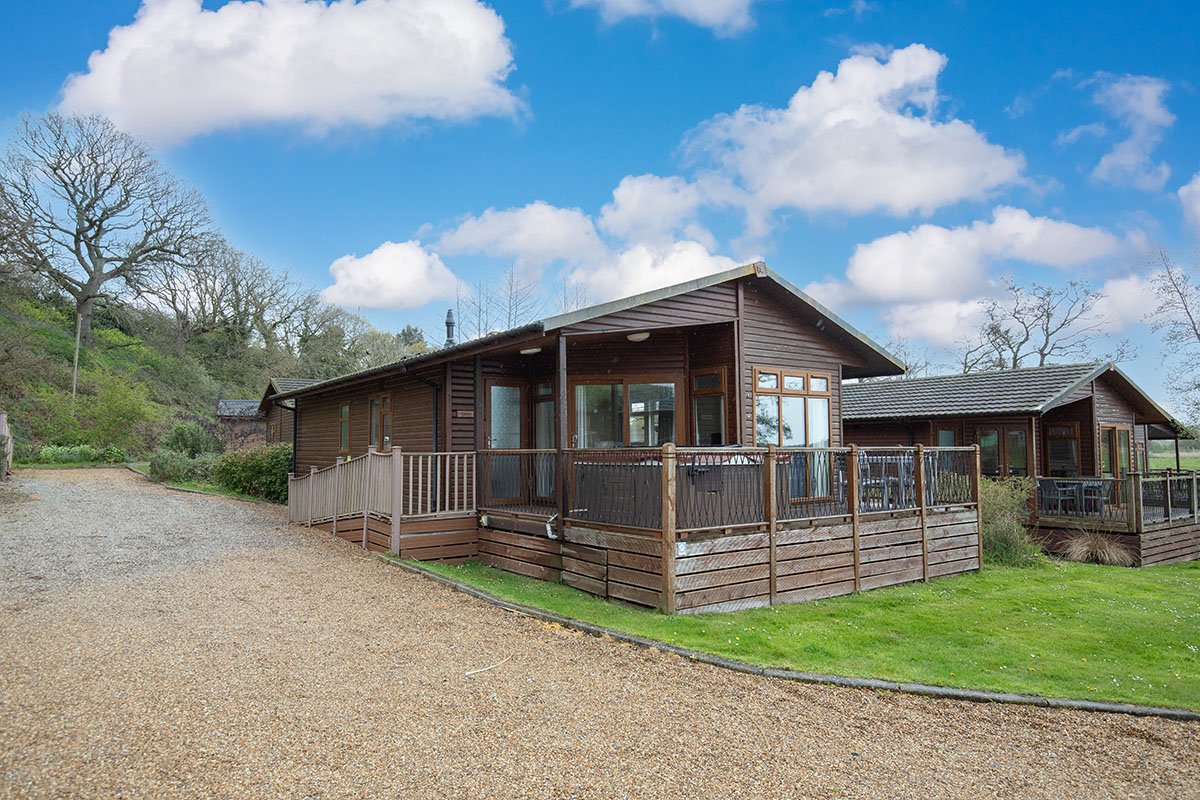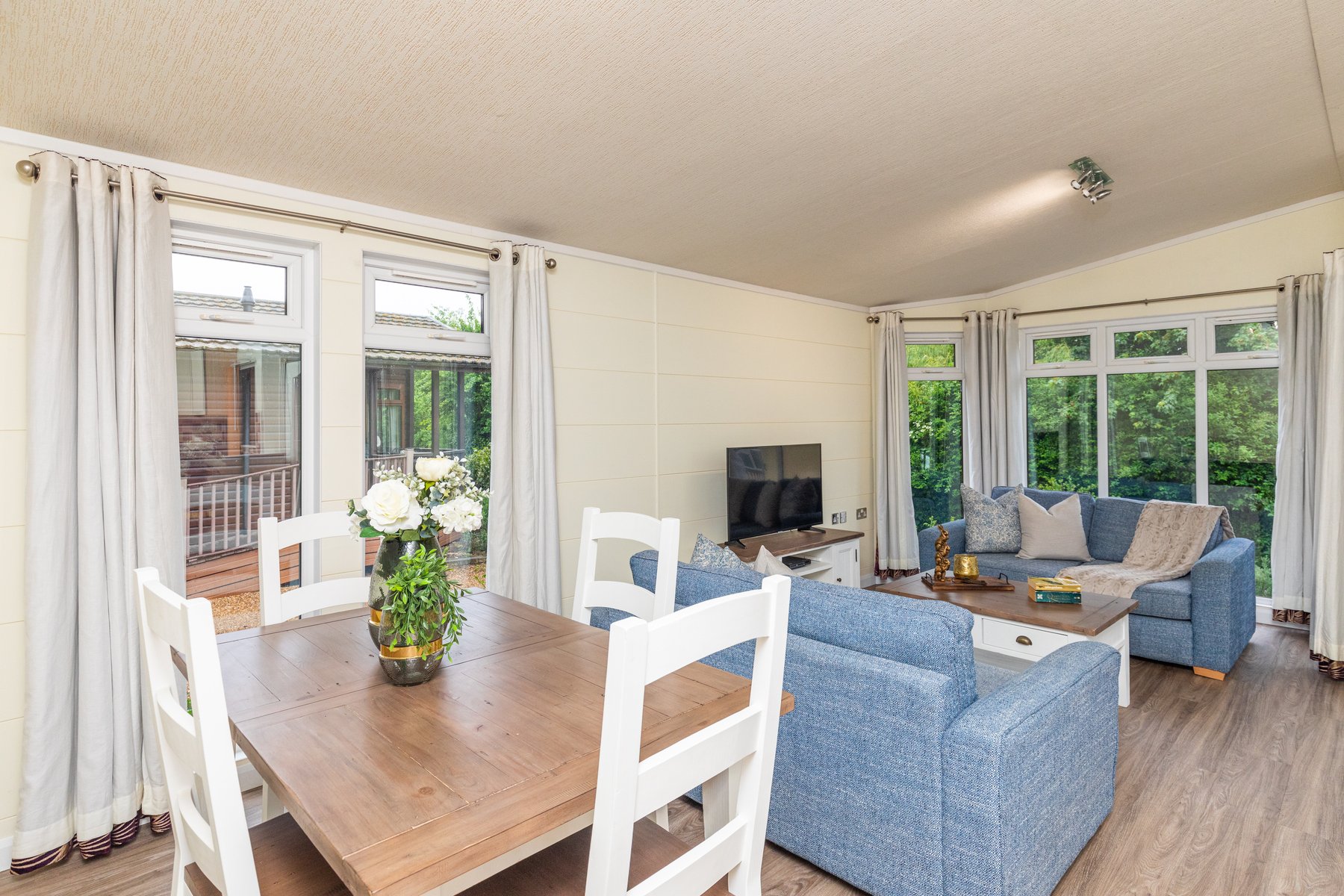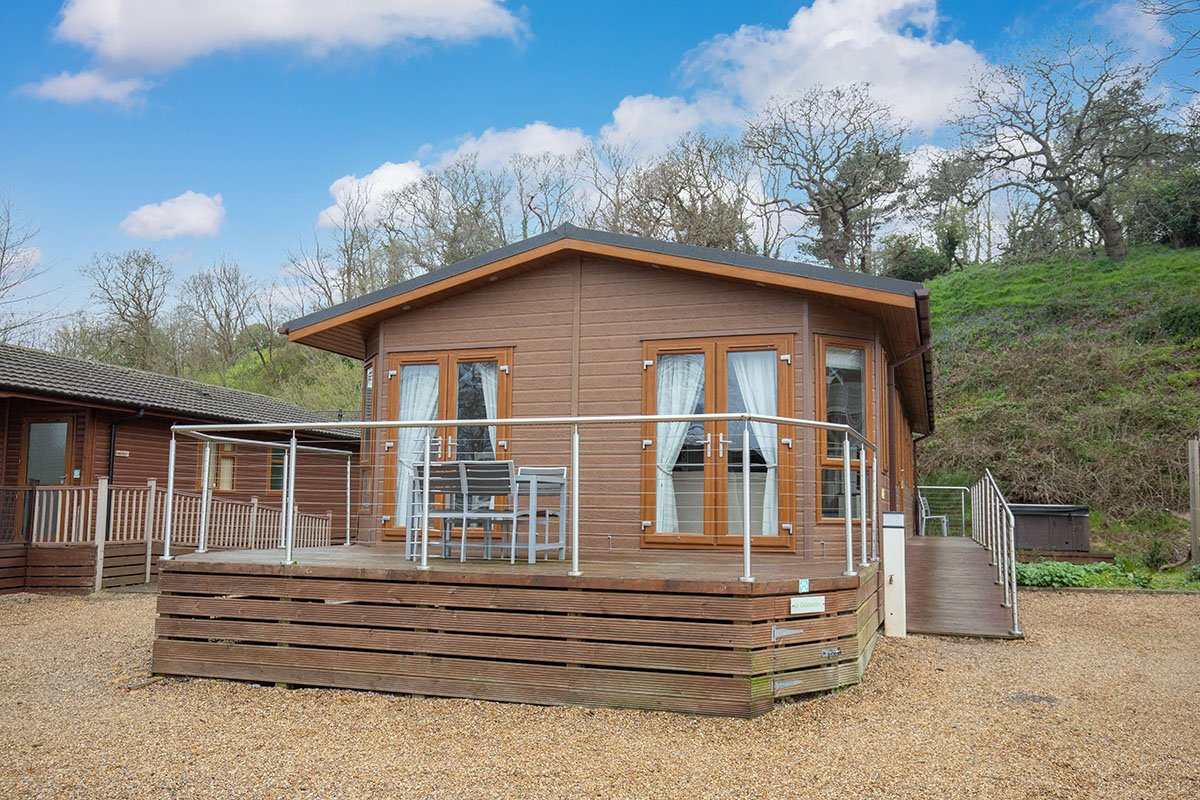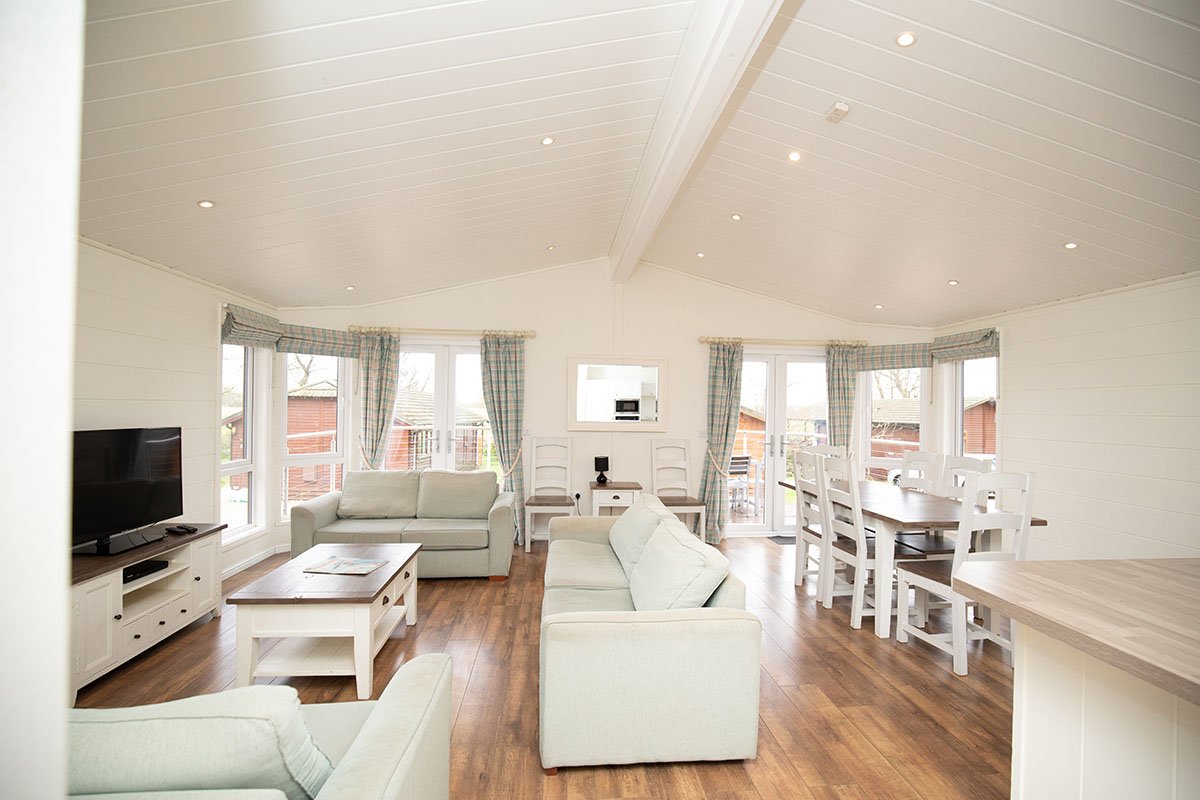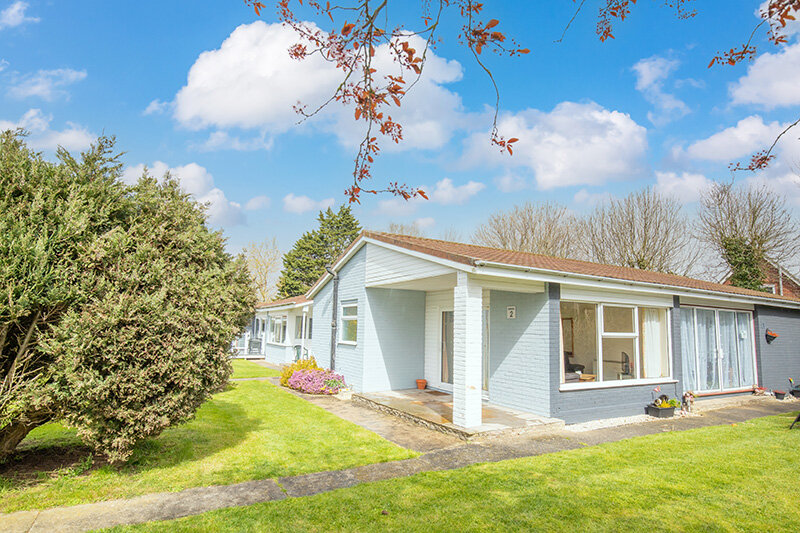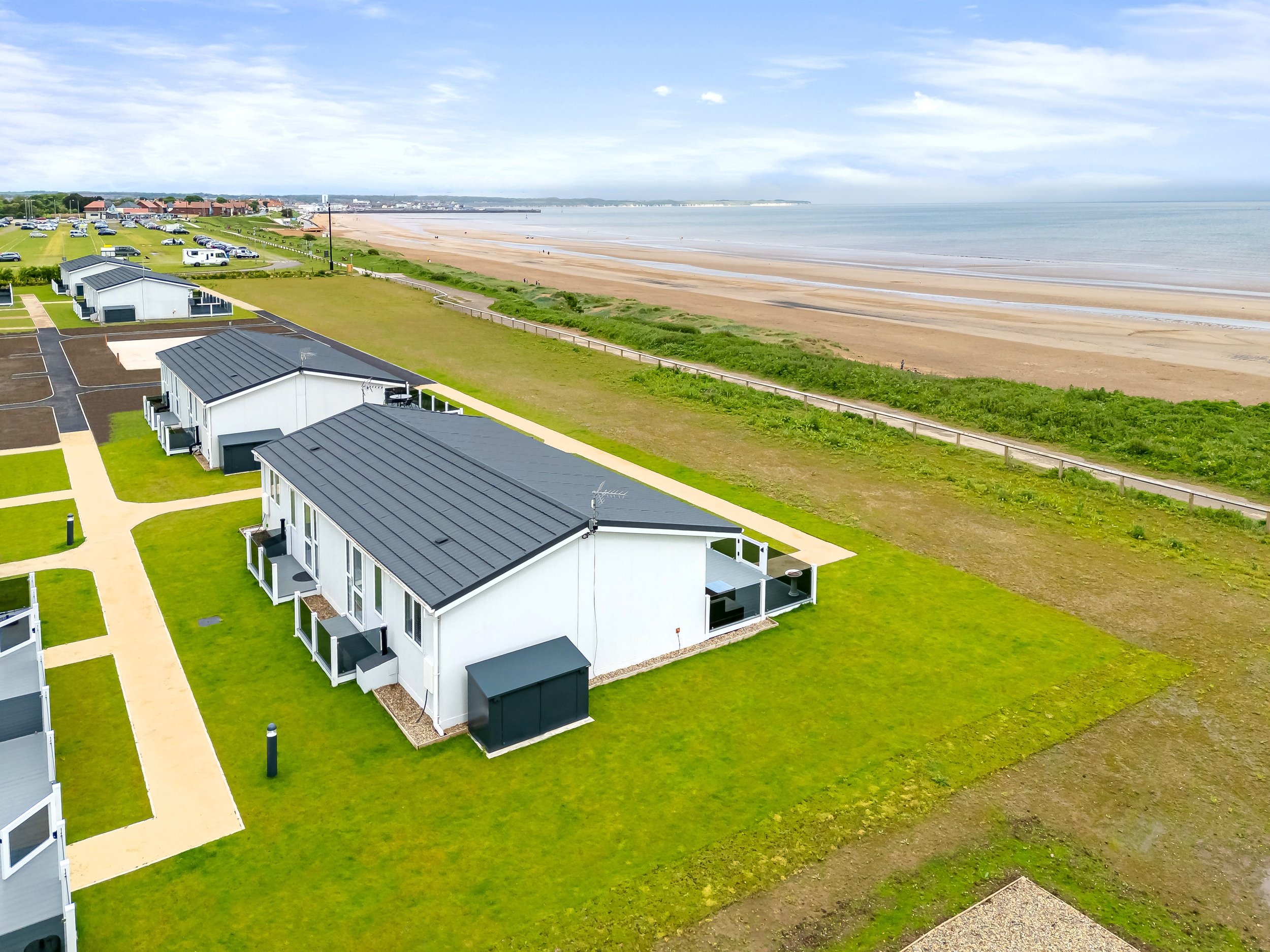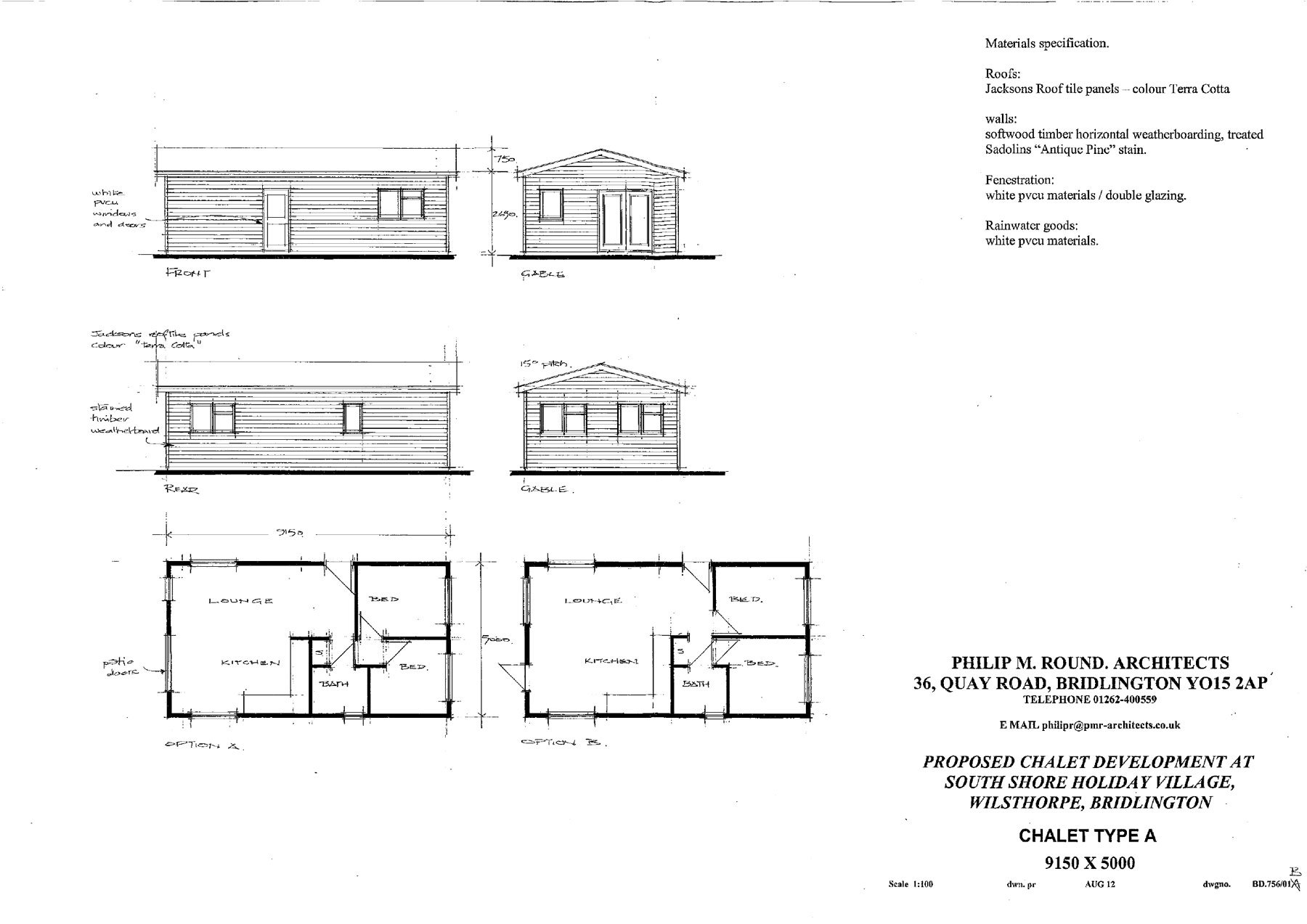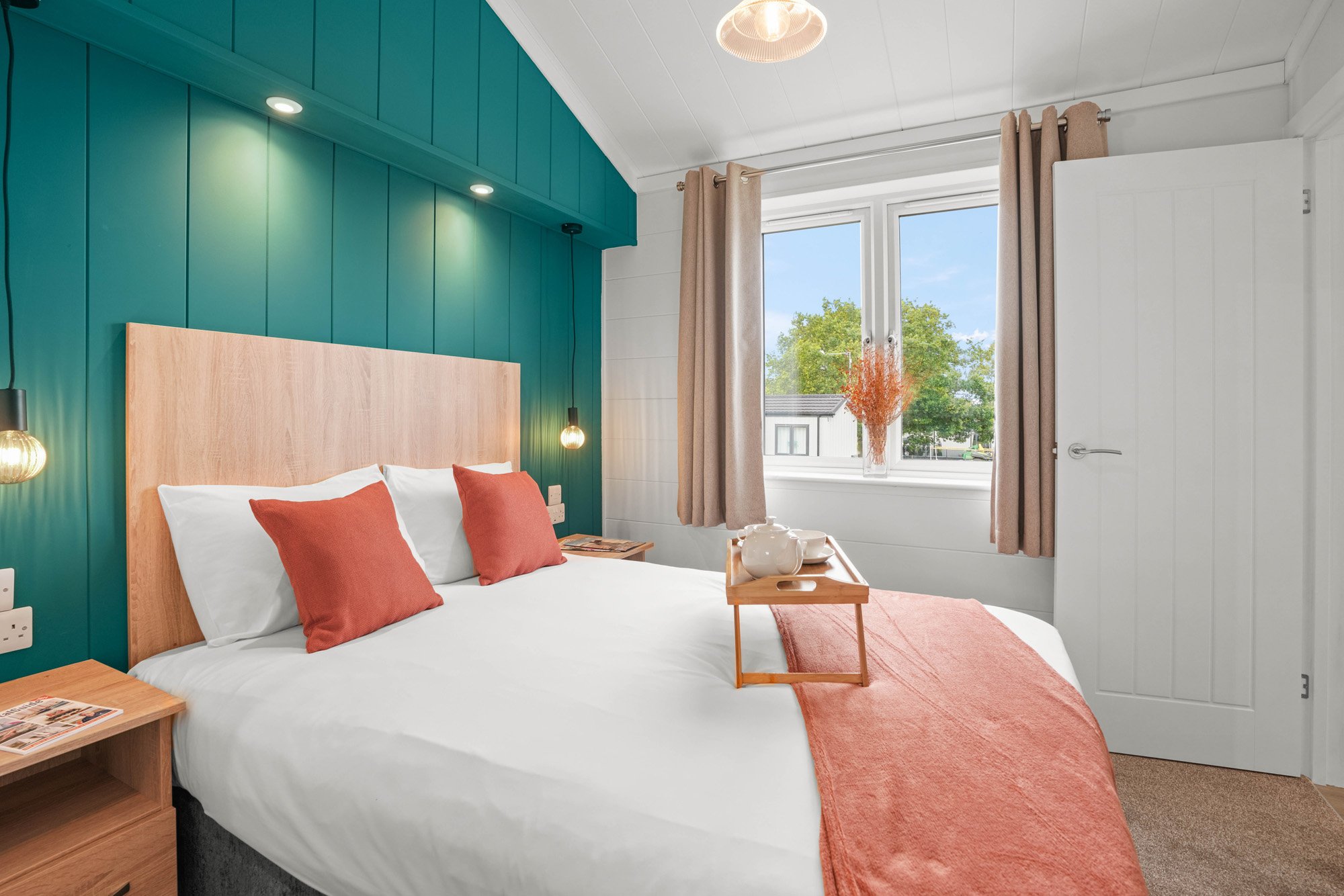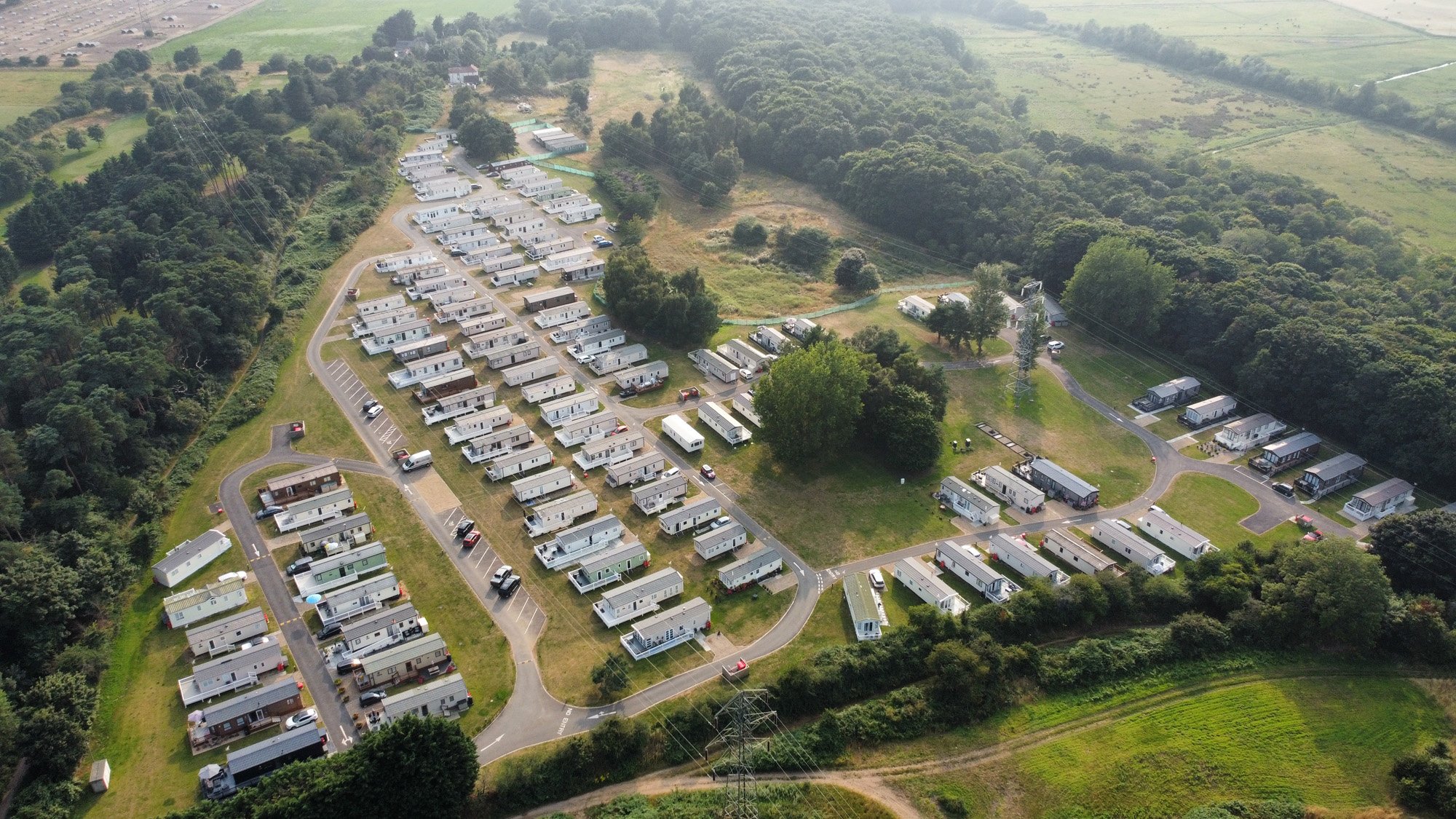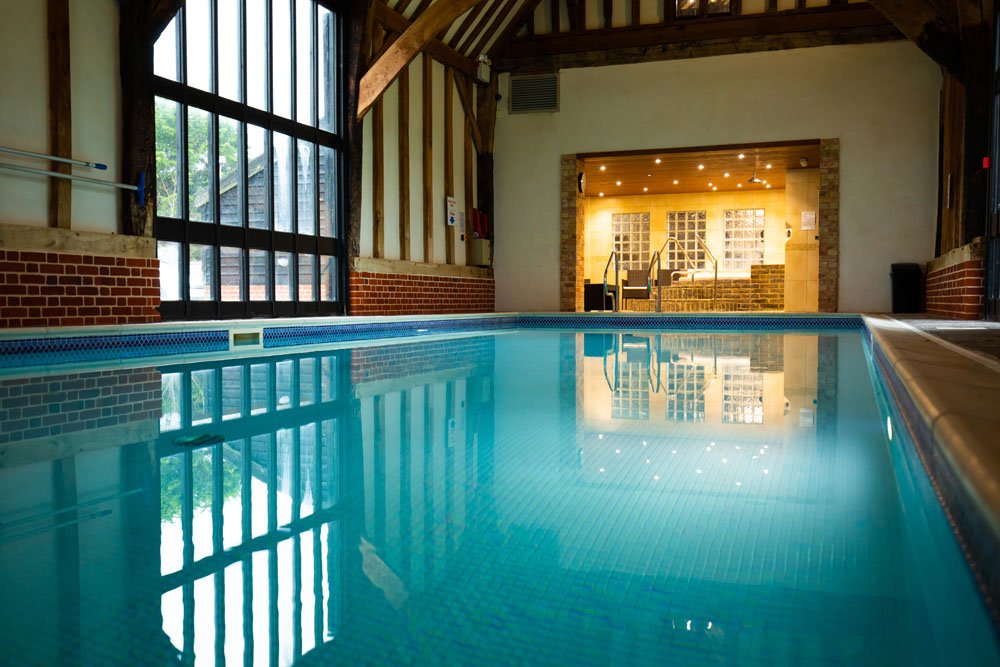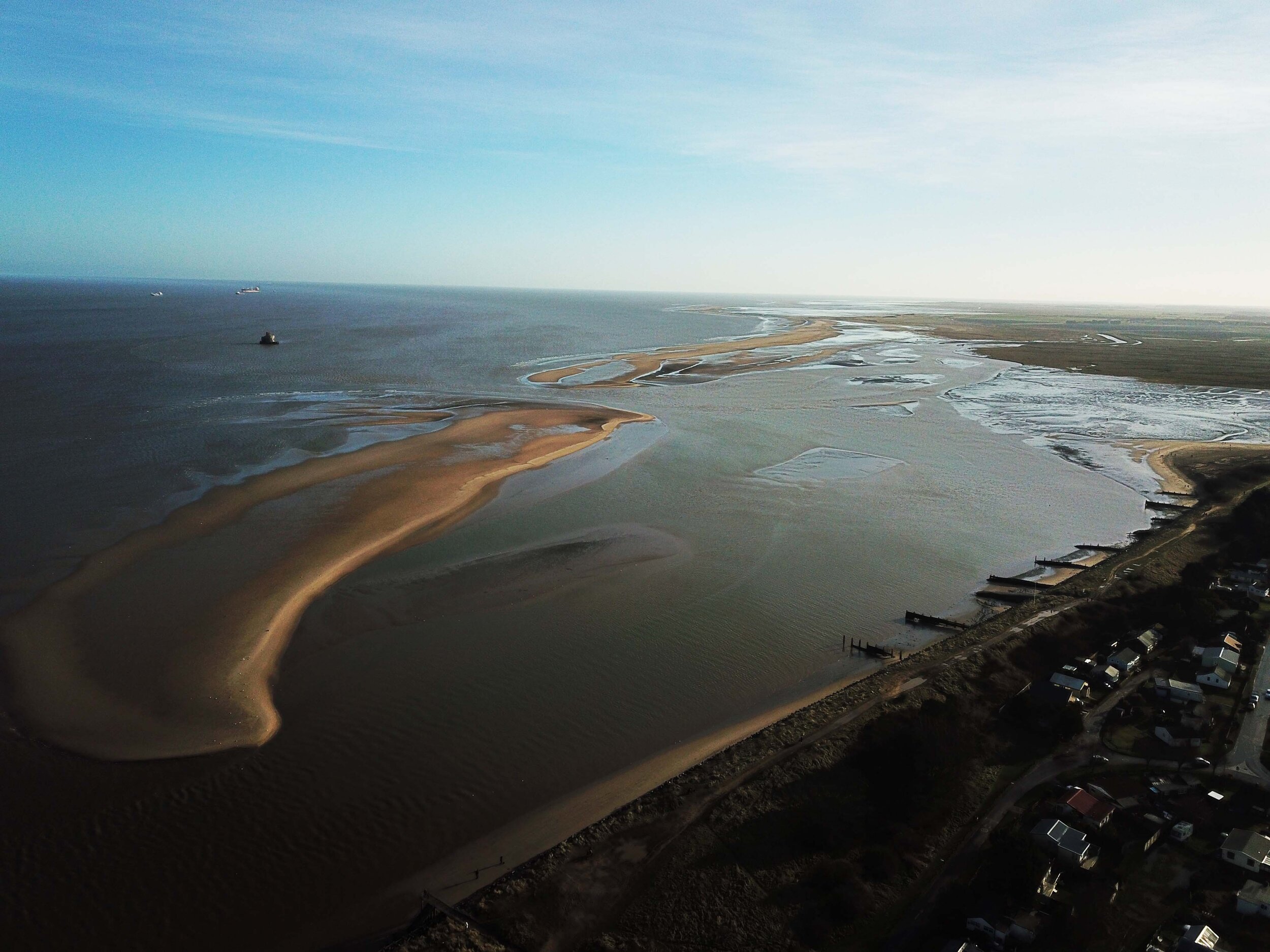The Carlton Lodge at Broadlands Park & Marina in Oulton Broad offers a perfect home from home for yourself and paying guests
Owning a second home has become an increasingly popular dream for many.
Whether it's investing a retirement nest egg, saving money on trips over time, joining a new community, or simply escaping the rat race for some much-needed rest and relaxation, the appeal of owning a holiday home is undeniable.
But as we navigate an evolving landscape of property investments, one thing is becoming clear: the model of using residential properties as short-term lets is facing serious challenges.
Airbnb’s impact on tourism and communities
Needless to say, you don’t just find residential properties on Airbnb and the like; plenty of people and businesses utilise online marketplaces to promote their caravans, holiday parks, or purpose built holiday rentals.
However, it’s not unreasonable to cite Airbnb as a major player in short-term letting and its effects on residential communities worldwide. Airbnb’s Californian roots, an idea of some roommates to earn some extra cash in 2007, are already at risk of fading into history with stock prices falling and governments looking to ban it all together in certain places.
So what if there was a way of investing in a property that reaped regular letting income, without many of the setbacks of traditional second homes? Read on to find out more about why buying a purpose-built holiday home may be a better choice.
The challenges of using a residential home as a holiday let
Stricter regulations and licences in the UK and Europe
Local communities across Spain, Portugal and Italy are seeing tourists using short-term lets more than hotels, with the likes of Airbnb and Vrbo as the cause of increasing property prices, along with reducing the number of homes available for residents and local families.
Dissent spread through the Canary Islands, Malaga and The Balearic Islands. The rights and wrongs of what happened on those streets are another issue, but the fact is that it’s a demonstration of the strength of feeling.
It’s a feeling that’s being exacerbated by the inevitable rise of illegal, or black market, short-term rentals. The problem has become so big in Spain, that the Spanish government have ordered Airbnb to block more than 65,000 holiday listings on its platform over rule violations, and the Valencia region is imposing €600,000 fines on unlicensed rental apartments. Some estimates put the number of those illegal or unlicensed apartments in the region at 50,000.
Barcelona proved to be a catalyst. As its effects rippled out, the city took further action. In one of the most severe crackdowns on Airbnb so far Barcelona announced that it would remove all listed short-term renting, around 10,000 properties, by 2028.
“The UK Government is looking at legislation aimed at protecting communities from the negative effects of short-term letting of residential properties, and that will include stricter planning rules.”
Lisbon, Florence and Amsterdam have all now imposed strict regulations on short-term rentals. Running a legal short-term hire apartment in Valencia means plenty of rules to abide by; property details, insurance policies, the intended use of the property, compliance with quality and safety standards and other documents to prove ownership are all required to get a licence.
In general, the regulations around using residential properties as Airbnb lets are changing and tightening across Europe, with murmurings of the UK following suit.
Questions are already being asked by UK councils about flats being used as short-term lets, as they’re often in breach of their leases, and mortgage conditions. As a result, mortgage companies are cracking down. Moreover, the Government is looking at legislation aimed at protecting communities from the negative effects of short-term letting of residential properties, and that will include stricter planning rules.
Councils across the country are cracking down on second-home owners who took advantage of post-COVID financial opportunities by imposing double-rate council tax on properties removed from the local housing market for use as second homes or holiday homes.
While councils were already empowered by the government to charge full or even higher council tax rates on holiday homes, the new rules now extend to second-home owners who use their properties for personal use, not just those renting them out as holiday lets.
The exception to this rule applies to owners of holiday homes within designated holiday resorts. Many of these resorts operate year-round, offer on-site facilities funded by owners, and are specifically designed for holiday use, as outlined in their planning permissions.
With council tax rates increasing by up to 200% and tighter restrictions on Airbnb-style rentals, it’s no surprise that buyers are turning to holiday resorts for their second-home investments. Purpose-built holiday parks with managed letting schemes provide a structured alternative that doesn’t impact local housing stock and supports tourism in designated areas.
Wells-next-the-Sea, the Prosecco Ghetto, recently voted to restrict second homes and holiday lets in the residential market
Tax changes and reduced financial incentives
For prospective buyers, issues like mortgage and insurance limitations further complicate the appeal of investing in residential properties for short-term letting.
By 2025, HMRC will treat short-term lets similarly to long-term rentals, and eliminate key tax reliefs like Capital Gains Tax Relief and allowances for furnishings, significantly reducing the financial appeal. Coupled with stricter planning rules and costly licensing requirements in many areas, such as London’s 90-day rental cap, these changes are making short-term letting a far less viable investment option.
Impact on local communities
The societal and economic impacts of residential properties being used as holiday lets are significant.
The effects of residential properties being used solely as second homes have created ghost towns in places around the UK. The lack of housing opportunities pushes locals out of these towns and villages, and the absence of people all year round has great effects on the local economy, with businesses unable to stay afloat outside of the busy summer months.
Holidaymakers coming and going at odd hours can also disturb long-term residents, creating tension within neighbourhoods.
Wells-next-the-Sea in North Norfolk, dubbed the ‘Prosecco Ghetto’ due to wealthy tourists and second home owners, voted overwhelmingly to restrict further second homes and holiday lets in a council referendum just last year. Some areas of the popular seaside town are 90% holiday homes, putting immense pressure on local families and residents.
“Second home owners are seeing reduced short-term bookings; issues with neighbours, cleaning and maintenance problems due to turnover of guests, and rise in availability are all increasing costs that are passed on to the consumer.”
Oversaturation and declining occupancy rates
Managing agents with portfolios of flats and apartments are known to be increasing their fees, because they are concerned about the long-term viability of the business model.
Hosts and owners are seeing reduced short-term bookings, often precisely because of some of the issues we’ve touched on above, plus issues with neighbours, cleaning and maintenance problems due to turnover of guests, and a rise in availability, all of which increase costs that are ultimately passed on to the consumer. The oversaturation of the market and increased costs mean less occupancy for many hosts, and that vicious circle creates a less-than-great investment.
Many owners are inevitably trying to sell, and when they do there’s another set of problems. Short-term holiday let income will not be an inducement to buy the property, as it’s often something that some of today’s prospective buyers struggle to get involved with due to insurance and mortgage limitations.
The refurbished Chedgrave Lodge at Waveney River Centre on the Norfolk Broads would make an cosy yet modern escape for owners and guests alike
Why purpose-built holiday homes are a better option
While the short-term letting model for residential homes may no longer be as lucrative, there’s still a strong case for investing in the UK holiday home market — particularly with purpose-built holiday homes or caravans:
Ease of ownership
Purpose-built holiday homes are specifically designed for leisure use, eliminating the legal, tax, and licensing complications associated with residential properties.
Holiday parks should make it very clear exactly what paperwork you need, and what fees to pay when buying a holiday home. Holiday park staff will always be there for help and guidance throughout the purchasing process, which is distinctly absent when you go it alone to turn a residential property into a holiday let.
Vibrant communities
Holiday parks foster a sense of community between owners, guests and staff. For example, the park teams across Tingdene holiday park locations are always on hand to answer questions, offer advice or even just have a friendly chat! Many locations also offer multiple owner events throughout the year, offering an opportunity to get to know the team and fellow holiday home owners.
Excellent facilities
Holiday parks are often equipped with amenities like pools, restaurants, leisure facilities, and EV charging points. Unlike isolated residential homes, they create an engaging environment for holidaymakers and holiday home owners, meaning you often don’t need to leave the park to enjoy your day!
Brand new holiday homes on the East Yorkshire coast at South Shore are incredibly popular with holiday guests, making them a worthy investment
Affordability and letting schemes
Purpose-built holiday homes are typically more affordable than residential homes in tourist hotspots. As an example, the average detached house price in Oulton Broad (according to Rightmove) is around £312,696, whereas you could buy a brand new lodge holiday home at Tingdene Broadlands Park and Marina for £99,995.
Many holiday parks also offer letting schemes, taking the stress out of renting while providing a steady income stream, including at Tingdene Waveney River Centre.
Sustainability and reduced carbon footprint
It’s also prudent to consider how fewer air miles make a UK holiday home a greener option.
Protecting the planet itself has to be high on our agenda, and racking up air miles to go and look after or visit a holiday property abroad is not helping. Airports emit massive amounts of carbon before you even take off, and the flights make matters much worse.
Think about a purpose-built holiday home in a location specifically designed for holiday homes, taking advantage of the glorious green and blue spaces around the UK, with holiday parks in prime locations around the countryside and coastlines.
Complications of short-term lets, unwelcoming neighbours, constant legal changes and complex taxation issues are all non-issues on a holiday park, and that’s a lot of boxes ticked. You’re not flying, therefore reducing your carbon footprint, and you’re on your way to ticking the green box too.
Holiday parks like Broadlands Park & Marina create stable jobs for local residents in hospitality, maintenance and administration
Hassle-free maintenance
Holiday parks will generally handle the upkeep of communal areas and facilities, so you don’t need to worry about maintaining outdoor spaces around your holiday home. Plus, it’s easier to maintain a lodge or holiday home decking than an entire garden.
Positive impact on local communities
Unlike residential short-term lets that can harm local communities by driving up housing prices and reducing available homes, holiday parks offer a net positive contribution.
Holiday parks create stable jobs for local residents in hospitality, maintenance and administration, while boosting nearby businesses by encouraging holidaymakers to frequent local shops, restaurants, and attractions.
By supporting the local economy and encouraging sustainable tourism, holiday parks foster a thriving and balanced environment for both locals and visitors.
Year-round enjoyment
With purpose-built holiday homes, many holiday parks offer 12-month holiday use and caravan parks often offer 10-11 month licences, meaning you can enjoy your holiday home and all its benefits throughout most, if not all, of the year, creating lasting memories with your loved ones.
Tingdene Holiday Parks
Tingdene Holiday Parks offers a range of outstanding UK holiday homes in prime locations, complete with excellent facilities and affordable pricing. Here are just a few of the exceptional options available:
Tingdene Caldecott Hall Country Park, Norfolk
Nestled in the serene woodland of Fritton in Norfolk, Tingdene Caldecott Hall Country Park offers everything you need from a holiday home location. As a holiday home owner, you’ll enjoy exclusive discounts at the park’s leisure facilities, including a pool, jacuzzi, steam room, Barn1 bar and restaurant, Multi Golf and Caldecott Hall Golf Club.
Fritton is within the Norfolk Broads area, meaning the iconic towns and villages of the Broads National Park are within easy reach. Just a short drive away are some great seaside towns like Gorleston and Great Yarmouth, or slightly further afield you’ll find Beccles and Norwich.
With caravans for sale, pitches available to bring your own caravan to, and a development of brand-new semi-detached holiday homes and stunning, historic barn conversions at The Stables, Caldecott Hall Country Park has something to offer everyone.
Tingdene Waveney River Centre, Norfolk
Tingdene Waveney River Centre in Burgh St Peter is a great example of how, and where, to have a holiday home. This place captures the spirit of the Norfolk Broads, nestling among the boatyards and wildlife of the county’s southern borders. The lodges here, for sale from £99,995, are spacious, cosy gems, available for all year-round holiday use.
Welcoming regular visitors and holidaymakers, these lodges are perfect for letting when you’re not enjoying your own escape on the Broads National Park, and with an on-site Managed Letting Scheme, there’s even a stress-free way to let your property to guests.
The on-site Waveney Inn restaurant, swimming pool and marina provide days full of activity without even leaving the park. Within walking distance is the iconic St Mary’s church of Burgh St Peter, and you can ride the foot ferry for access to SWT Carlton Marshes across the river.
Tingdene Broadlands Park & Marina, SUffolk
Tingdene Broadlands Park & Marina in Oulton Broad offers brick-built bungalows, brand-new lodges, caravans for sale and caravan pitches to bring your beloved static caravan, meaning you can create a real home-from-home feeling across a spectrum of budgets. From £39,000 for villas and £99,995 for lodges, these holiday homes are significantly cheaper than the average house price in the local area.
This thriving holiday park and marina provides direct access to the Broads National Park via the marina slipway, and is within easy reach of popular towns and villages via the train station next to the main entrance. A public footpath leads through the park adjacent to the marina – head one way to enjoy the nature-filled SWT Carlton Marshes, and head the other for Nicholas Everitt Park, Oulton Broad and beyond.
And if you’re looking to just relax where you are, the on-site swimming pool and Moss & Co bar and restaurant provide more than enough to do without even leaving the park.
Tingdene South Shore, East Yorkshire
Tingdene South Shore on the East Yorkshire coast, south of the bustling and historic seaside town of Bridlington, has been a community of holiday home owners since the 1950s.
Extremely popular with holidaymakers, with a majority of owners letting out their holiday chalets to paying guests, holiday properties on South Shore make for a worthy investment.
Brand new, seafront properties are available for sale from £85,000 with free lease rent until 2027, maximising profit opportunities in a popular location.
So why buy a holiday home?
Outstanding UK holiday homes in superb parks in wonderful locations are available right now. It’s pretty much the complete and correct answer to the question - why buy a holiday home?
Investing in a purpose-built holiday home offers clear financial, emotional and lifestyle advantages over using residential properties for short-term lets. From avoiding regulatory hurdles and enjoying vibrant community amenities, to supporting local economies and reducing your carbon footprint, the benefits are compelling.
A purpose-built holiday home is an investment that would be a significantly lower cost than buying local residential property, but ultimately you’re investing in time together and memories being made. Isn’t that what life is all about? Buying a holiday home in a Tingdene holiday park will enable you to live the dream.
So why not explore the opportunities at Tingdene Holiday Parks and turn your holiday home dreams into reality? Outstanding locations, superb facilities, and a hassle-free ownership experience await. It’s time to live the dream — and Tingdene is here to help you make it happen.



